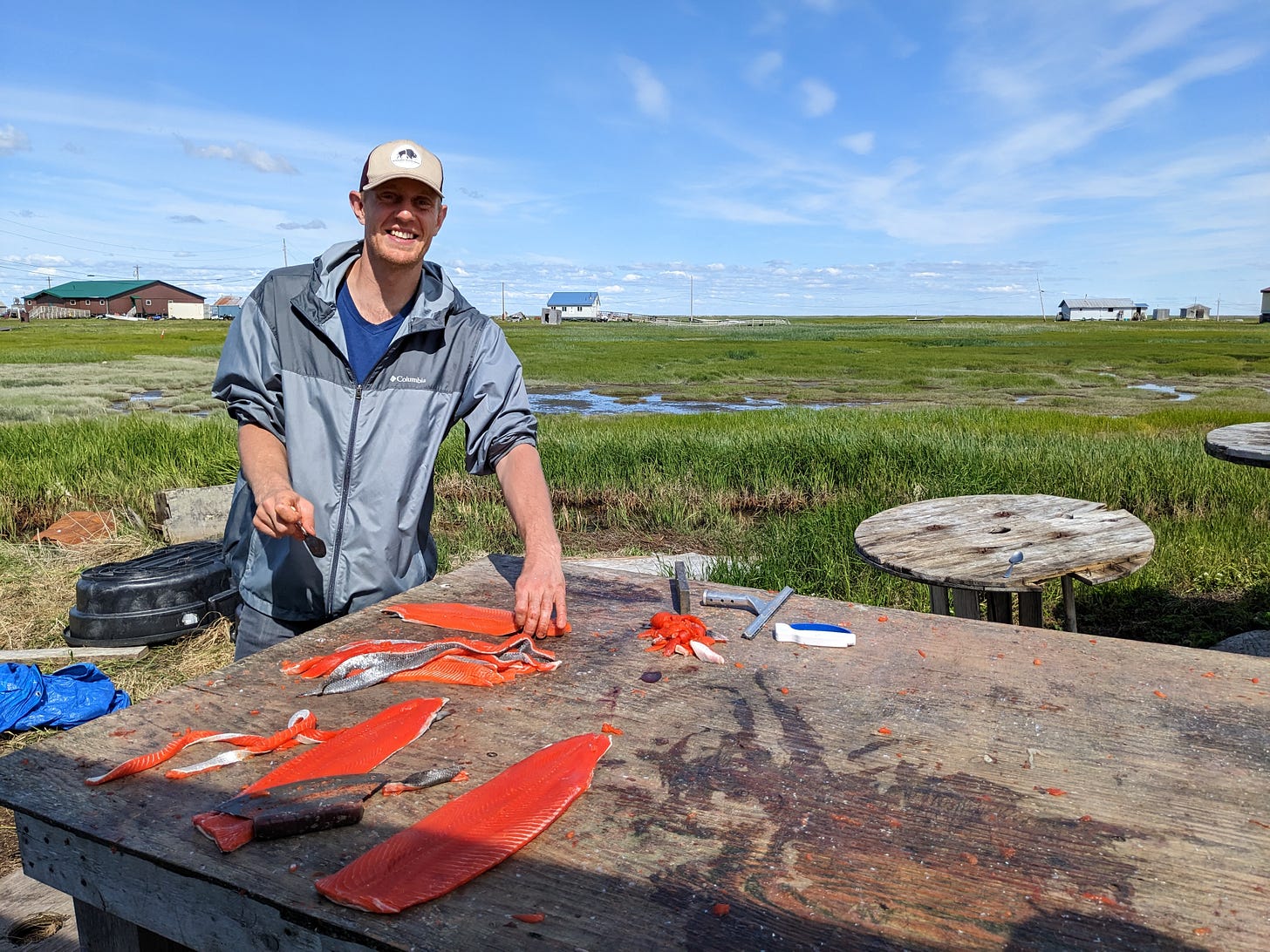My 3 rules for learning from anyone:
Find people different from you
Ask them what it’s like to be them
Listen to their answers without judgment, and ask clarifying questions.
The absolute opposite of this?
A mistake I made last year that I’m calling the “cardinal sin of cultural exchange.”
Do not:
Go into a new situation with a new culture full of ideas fueled by your own “research” and assume that you already know what you’ll learn from them.
Let me explain.
This past summer, I was lucky enough to work as a summer camp coordinator for kids across five remote Alaskan indigenous villages.
There is no frame of reference for understanding how remote these communities are if you’re a human being who lives in a place connected to roads.
These villages are only accessible by small planes. The flights are canceled all the time. Surrounding them is hundreds of miles of swampy, barely walkable tundra.
The tribes that live in these villages drive four-wheelers around on raised boardwalks because there are no cars.
They hunt, fish, trap, and forage for the majority of their food supply.
I’ll be writing more about this experience in the coming months. For now, let’s focus on my mindset going in.
Before I left, I couldn’t wait to talk to the tribal elders
I thought I was going to learn all sorts of amazing spoken wisdom from the elders of these tribes.
Because of reading books like Lame Deer: Seeker of Visions, I thought that I was going to meet tribal elders who spoke in flowing, poetic sentences that would immediately improve my life.
I talked to lots of elders while I was out there. When they talked, which was not often, do you know what they talked about?
Salmon, moose, and berries.
And the level of availability of salmon, moose, and berries available presently as opposed to the amount of salmon, moose, and berries that they’d been able to find in years past.
In the beginning, I had the audacity to be frustrated that I wasn’t hearing the type of “wisdom” that I wanted. Then, I listened to an interview with the Anthropologist Wade Davis, who laid out the error of my ways beautifully.
Cultural understanding to the rescue
If we truly believe that all humans are equal, that means that every culture carries the same capacity for genius and depth of understanding.
“If you took all of the genius that allowed us to put a man on the moon and applied it to an understanding of the ocean, what you would get is Polynesia.”
-Wade Davis
The Western world applied that genius to scientific thought. But cultures all over the world applied it in different ways.
The Yupik people (the indigenous group I was lucky enough to be hosted by) came of age in an unbelievably harsh environment.
Because they were nomadic until relatively recently, they didn’t produce great works of literature or giant works of art.
They were busy surviving in one of the hardest climates on earth.
The lesson wasn’t in their spoken wisdom.
The lesson was in appreciating just how amazing it was that they knew what they knew. That they were so in touch with their environment.
In letting the fact that they survived in that harsh wasteland blow my mind, and appreciating that.
Not trying to color the experience with my own agenda.
We need to listen to each other
In the post-covid world, we’re splintered into a million different echo chambers.
We’re all on different algorithms, and we barely ever find time to interact with people different from us.
In the political realm, this creates a lot of shouting.
When we meet someone who disagrees with our belief system, we spend all our time judging them for what they believe and trying to overwhelm them with our own opinions.
Every person who’s not you has grown up with a different set of values, surrounded by different people, doing different things.
They haven’t arrived at all of the same conclusions as you, because how could they? They grew up in a totally different culture.
Because they grew up in a different culture, that means they have something to teach you.
No culture deserves to be fetishized (like I did before I met the Alaskan elders), and no culture deserves to be judged without empathy.
Embrace the fact that there are billions of people who disagree with you.
It’s what makes the world so vibrant and diverse.
Empathize. Empathize the hardest with the people you disagree with. It’s the only way our dialogues will go anywhere.





What an opportunity you had to experience what you did and you took that and learned something new about yourself. Opening your eyes to your flaws and shortcomings is something we all need to work on. I know I am.